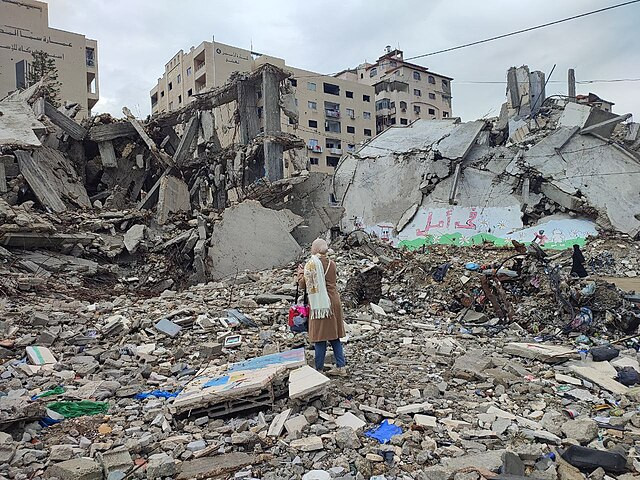Israel on Tuesday ordered all residents of Gaza City to evacuate immediately, warning of an imminent military assault aimed at seizing control of the enclave's largest urban area. The move triggered panic among Palestinians, many of whom said there was nowhere safe to flee.
Avichay Adraee, the Israel Defense Forces' Arabic-language spokesperson, told civilians to leave "from the Old City and Tuffah in the east to the sea in the west" and move south via the Rashid axis to the "humanitarian zone" in Al-Mawasi. Leaflets carrying the evacuation order and a map were airdropped across the city.
Prime Minister Benjamin Netanyahu, in a televised address, cautioned that "this is only the beginning of the intensified ground maneuver." Defense Minister Israel Katz added that Israel was prepared to unleash a "mighty hurricane" if Hamas did not surrender and release the remaining hostages.
Gaza City, home to roughly one million people before the war, has been under heavy bombardment for weeks. The IDF claims it now controls about 40% of the city and intends to expand operations until Hamas is dismantled. As of Wednesday, an Israeli official said only 70,000 residents-less than 10% of the population-had evacuated.
The military campaign comes amid growing humanitarian concerns. Gaza's Health Ministry announced that Al Shifa and Al Ahli hospitals would not be evacuated, stressing that doctors would not abandon patients. Displaced civilians expressed despair, with Bajess al-Khaldi, a cancer patient living in a tent area, saying: "There's no place left, not in the south, nor the north, nothing. We've become completely trapped."
The United Nations' Human Rights Chief Volker Türk warned that an escalation would result in "more massive forced displacement, more killing, more unbearable suffering, senseless destruction and atrocity crimes." The world's largest group of genocide scholars recently accused Israel of committing genocide in Gaza, citing a death toll of more than 64,000 reported by local authorities. Israel rejects the charge, arguing it is acting in self-defense after Hamas' October 7, 2023 attack that killed 1,200 people and saw 251 hostages taken.
Inside Israel, the plan has also sparked dissent. Families of hostages fear that a ground assault could endanger captives still held in Gaza, while opponents warn the offensive risks further diplomatic isolation. Netanyahu, however, has insisted the campaign is necessary to ensure Hamas can never again threaten Israel.
Displacement remains a central fear for Palestinians, who recall the "Nakba" of 1948 when hundreds of thousands were forced from their homes during Israel's creation. Um Samed, a 59-year-old mother of five, voiced the dilemma facing many residents: "To stay and die at home in Gaza City, or follow Israel's orders and leave Gaza and die in the south."
Meanwhile, Israeli officials said only 3,000 tents have entered Gaza so far out of a promised 100,000 intended to shelter evacuees. Aid groups warn that even if evacuation is carried out, Al-Mawasi and other designated "safe zones" are already overcrowded and have been repeatedly struck in Israeli raids.






